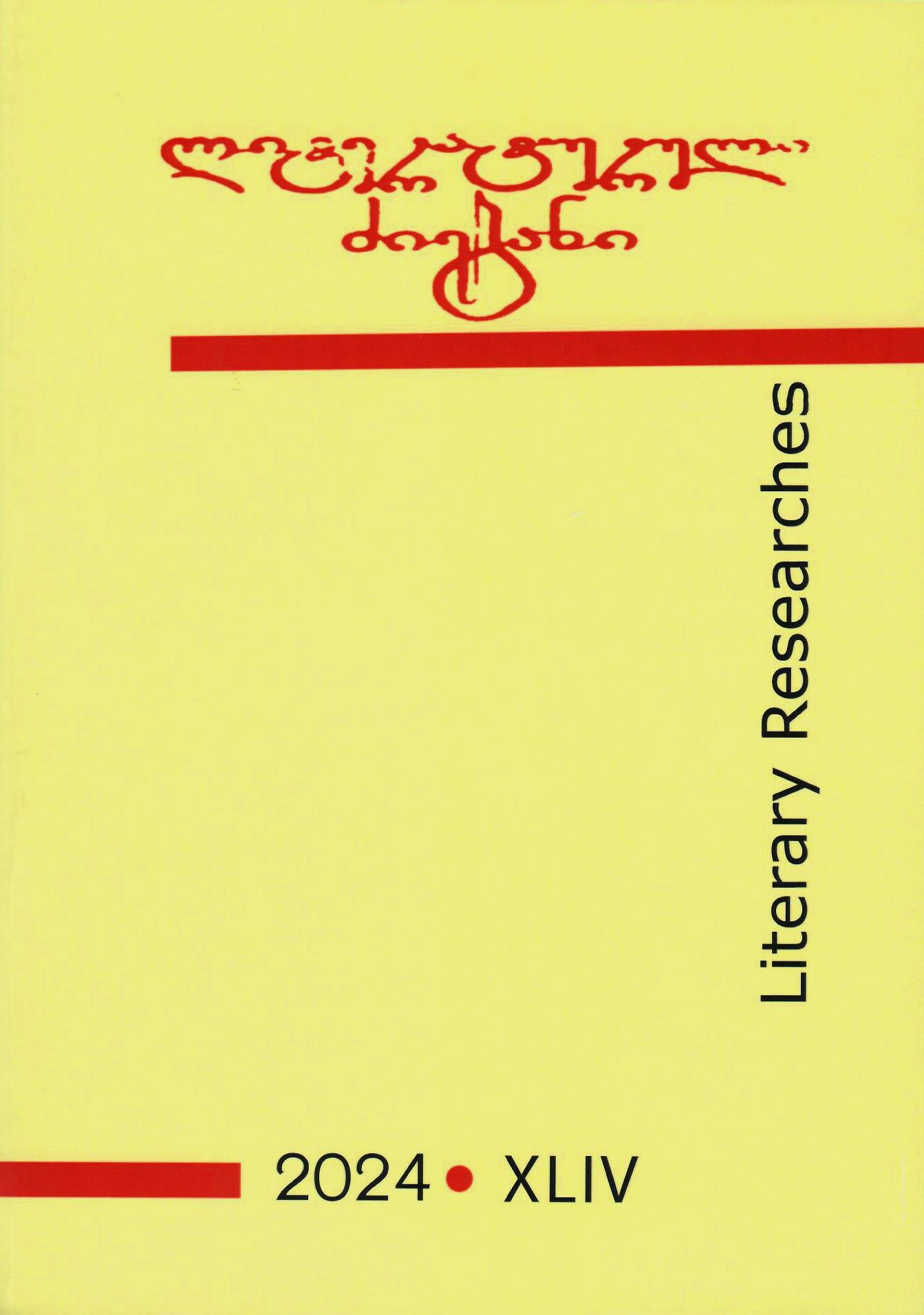გამოქვეყნებული 2024-11-27
საკვანძო სიტყვები
- „ქებაჲ ქებათაჲ“,
- „კურთხევათა კურთხევა“,
- ძმისწული,
- ძმისწულაკი,
- დისწული
როგორ უნდა ციტირება
ანოტაცია
The discussion of the cultural-cognitive aspects of the Georgian translations of the most difficult text of the Old Testament, „Song of Songs“, is connected with many difficulties. Because such high texts are characterized by hiding and obscuring themselves, covering the composition, disguising themselves through allegorical contexts. The places to be analyzed in the Georgian editions of this book of King Solomon are compared with each other, as well as with the academic text of the Septuagint, the Septuagint accompanied by a literal Hebrew translation, the Sinic and Venetian codices of the Septuagint. Georgian editions of the Bible used:
Revision O – The Oshk or Athos Bible and Jerusalem Codex of 978 Digitized by Zurab Sarjveladze and Jost Gippert;
Redaction of the S-Mtskheta Bible according to an unpublished manuscript of the 17th –18th centuries;
Editorial – Α unpublished manuscript of the 17th century;
Edition Β – the text of the Moscow Bible of 1743.
The paper presents the exegesis of the context and megatext of the Georgian title „Song of Songs“ 2. The dramaturgy of remarks in the Georgian translation and the Septuagint Remarque code. The article analyzes the most important cultural and cognitive aspects of Georgian translations of the „Song of Songs“. The translation of the title is not literal, since Georgian translators and editors instead of „song“ („Άσμα Ασμάτων“,) chose the lexeme „praise“, „the best praise“. This reduplicated form, which expresses the superlative degree, has the contexts of both „praise“ and „singing“. The choice of this lexeme is deliberate, since the Song of Songs was read allegorically. In the Georgian Bible (edition A), it is directly indicated in the title that this is a praise of the Most Holy Theotokos, the best of blessings. In the ancient Oshk Bible, verse 1 is missing. 1. In all ancient translations, except for the Syriac translation of the Peshita, the title says „song“. And in the Syriac translation of Peshita the lexeme is „Wisdom of Wisdom“ (Lopukhin). In the Old Armenian translation there is also a song „Երգ Երգոց“. Despite the fact that the so-called Bakar Bible (1743) was compared with the Slavic edition of the Bible, nothing has changed in the translation of the title „Song of Songs“. The Georgian tradition won. In the Georgian editions there are remarks. The appearance of remarks, on the one hand, is caused by the absence of the category of gender in the Georgian language. Remarks are absent in the Hebrew text, as well as in many codices of the Septuagint. As far as possible, we compared the remarks of all the Georgian editions under consideration with the remarks of the Sinaiticus Codex of the Septuagint of the 4th century and tried to determine their place in the artistic fabric of the text. It is very likely that the Georgian monks from the Sinai monastery were well acquainted with this codex. In the Mtskheta Bible-S, more detailed, expanded remarks, which play a large role in the composition of the „Song of Songs“.

